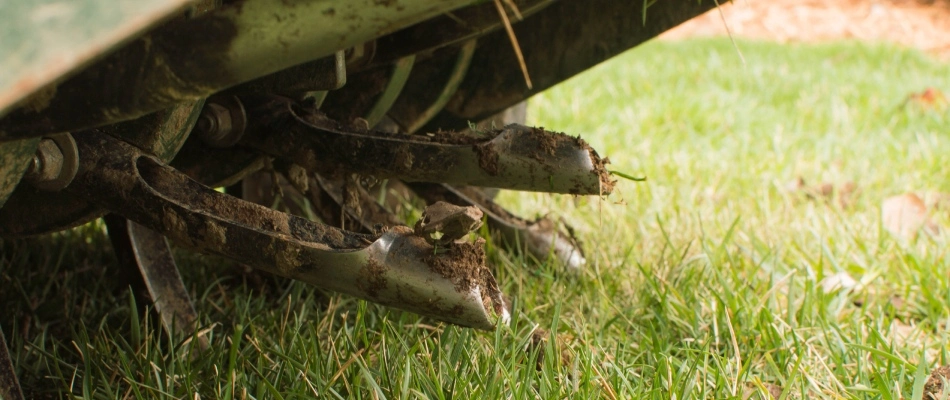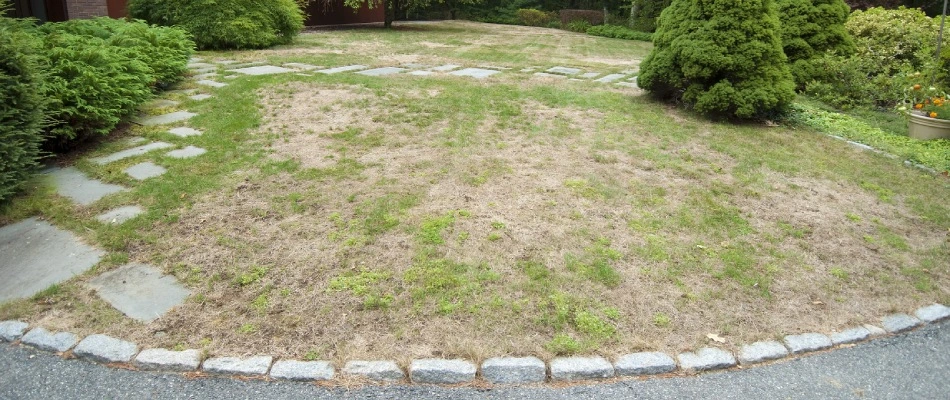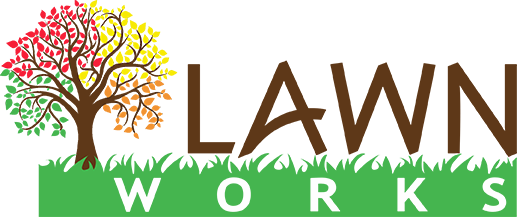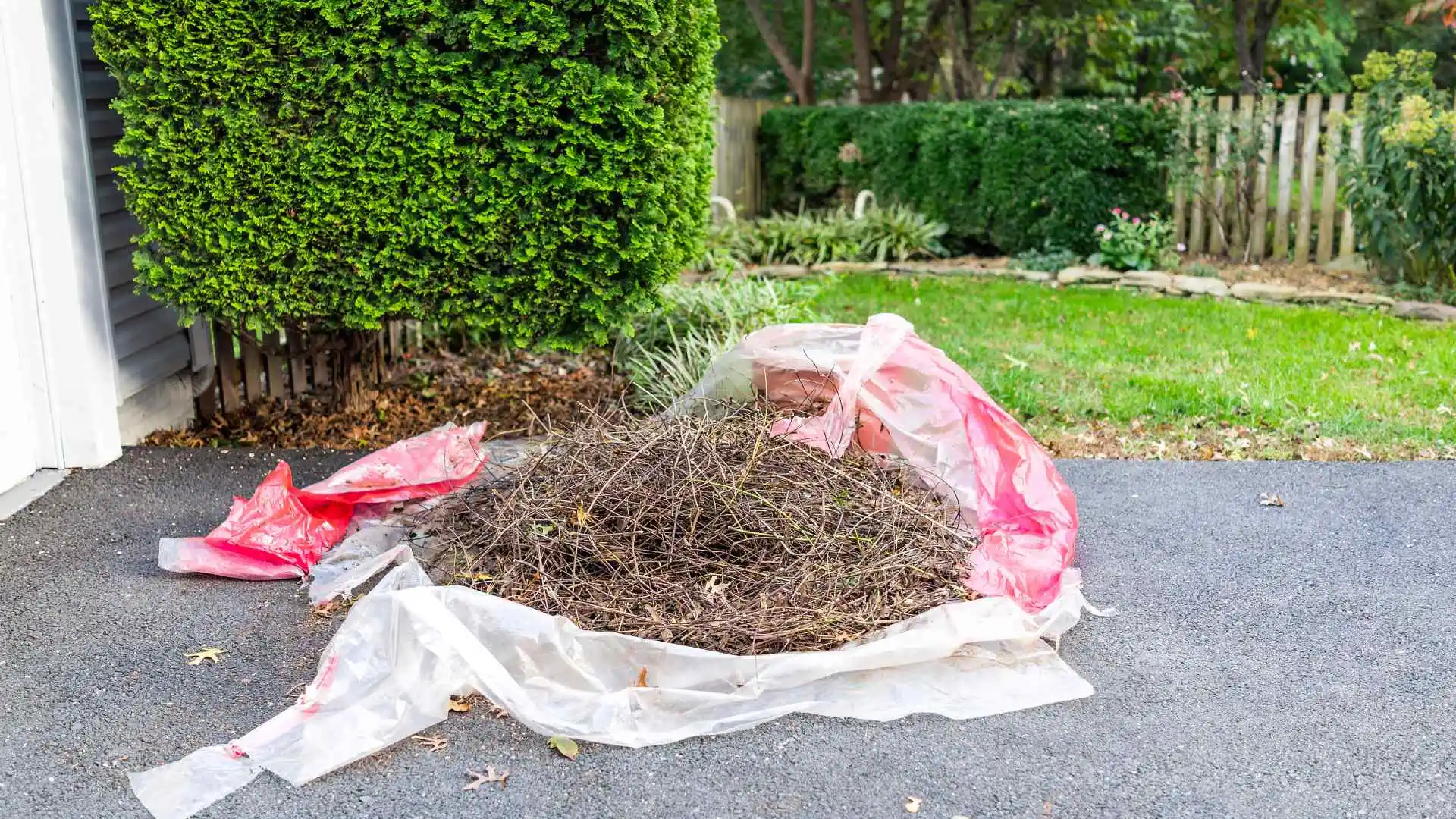The last thing you want after a long winter season is to have to deal with a whole new slew of issues preventing your lawn from looking its best. Over winter, debris like fallen leaves, twigs, and branches gather on the landscape, seemingly harmless – but it's best to clean up the debris ASAP to avoid problems. Debris can smother your grass by blocking sunlight and essential nutrients from reaching the roots. Decaying leaves and sticks will attract insects that are looking for good areas to infest. Both of these factors will weaken your grass, leaving it more susceptible to lawn diseases that thrive in cold weather, like red thread or brown patch which are commonly found in Kentucky and Indiana. Removing leftover winter debris before it has a chance to harm your grass is crucial to ensuring your lawn will be ready to thrive come spring.
Winter Debris Can Smother the Grass it's Covering

As you can probably imagine, once there is a layer of debris covering your grass, it can be difficult for your grass to receive the sunlight and nutrients they need to grow, resulting in smothered turf. This covering also reduces airflow, and especially as winter comes to a close, your grass will be looking for all the resources it can get to bounce back and break winter dormancy. Heavy fallen branches (or even just foot traffic!) can also lead to soil compaction, compounding the difficulty your grass has in receiving resources like water, air, and nutrients.
Investing in core aeration and overseeding can help a smothered or compacted lawn get back to peak health by increasing nutrient access and filling in any bare patches.
Insects Eat and Nest in Winter Debris
Fallen leaves and sticks may not seem appetizing to us, but the older they get, the more the organic matter will break down and attract insects looking for food and shelter. Lawn debris can shield the insects from predators like raccoons and skunks, and even other predatory insects, giving them escape routes and protection. By doubling as a food source, decaying leaves and branches are a one-stop shop for insects to eat, make their homes, and start an infestation, right in the heart of your lawn. Clearing out debris will make it much more difficult for insects to find spots to dig into and make their own, increasing the likelihood they will move along and find somewhere else to nest for the winter.
Weakened Grass Is More Susceptible to Disease

If your grass becomes smothered and infested with insects, it can become weak. Weakened grass does not have the stalwart defenses needed to fend off lawn diseases, making it very susceptible. Because leaves retain moisture and block sunlight, they create a perfect, deadly combination for diseases to thrive. Dark, damp, and cold areas encourage disease development, and weakened grass is the perfect host to transfer to and spread throughout while you may not be paying close attention.
Give us a call today to sign up for our spring cleanup service.
There are few things you can depend on in this world, but Lawn Works is one of them. With a 100% no-risk guarantee, we provide unparalleled customer service and will always show up when we say we will. Serving homes and businesses in Louisville, Kentucky, Jeffersonville, Indiana, and nearby areas, we take pride in everything we do and every long-term relationship we build with our clients. Our team is experienced, licensed, and made up of experts in everything lawn and landscape, including spring cleanups. You don't deserve anything less than the best – so call us today at (812) 590-8864 to sign up for our spring cleanup service!



Comments (0)
Thanks for your comment!
Thanks for your feedback! Your comments have been successfully submitted! Please note, all comments require admin approval prior to display.
Error submitting comment!
There is a problem with your comment, please see below and try again.